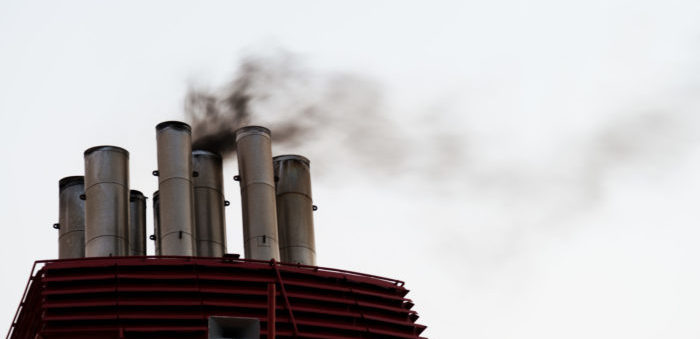Powering European ships with batteries, hydrogen or ammonia will decarbonise the fleet and require only half the amount of renewable electricity that less efficient solutions like synthetic methane or synthetic diesel will need, noted Transport & Environment in a new report revealing a Roadmap to Decarbonising European Shipping. The EU must set out in its 2050 Decarbonisation Strategy, to be published on 28 November, how it will end the use of fossil fuels in shipping, including marine fuel oil and LNG.
Shipping emits 3% of global CO2 and would be the 6th biggest emitter after Japan if it were a country. EU-related shipping is responsible for about one-fifth of these emissions. The IMO has just agreed a goal to reduce shipping emissions by at least 50% by 2050, but there are no plans to reach zero emissions, the transport group underlined.
Shipping is the neglected stepchild of EU climate policy. We need progress at international level coupled with practical steps in Europe such as investment in both shore-side charging stations and the production and bunkering infrastructure needed for hydrogen. A zero-emission shipping strategy in the EU would help cut pollution but also give European companies an edge in what will be some of the most important technologies of the future,
…said Faig Abbasov, shipping officer at T&E.
T&E said that further investment in gas bunkering infrastructure would lock EU countries into using LNG, which does not offer a path to decarbonisation and in some cases is worse than other fossil fuels. Such investment would also open the way for synthetic methane, which is inefficient and difficult to enforce. The small amounts of biofuels that can be produced sustainably would be better used in sectors which have no alternatives to using liquid fuels, such as aviation.

Key findings
- Battery powered ships offer the most efficient and immediate solution to decarbonise short sea voyages within the EU. Longer journeys will ultimately require liquid hydrogen and liquid ammonia produced with zero-emission electricity. Powering ships calling at EU ports with a combination of the three would require around 25% additional renewable electricity compared to total EU electricity production today.
- Even though a technology mix of batteries, liquid hydrogen and ammonia appears to be an optimal solution, the impact on the future EU renewable electricity production should not be underestimated.
- The complete decarbonisation of EU-related shipping in 2050 would require 11-53% additional renewable electricity generation across the EU28 over the 2015 levels. This range is estimated on the assumption that EU maritime emissions will grow by around 50% between 2010 and 2050, taking into account the deployment of a range of short & mid-term measures, EEDI & SEEMP, speed reduction and wind propulsion.
- In terms of different segments of EU related shipping, the least additional renewable electricity demand would likely be associated with EU short-sea shipping (SSS).
- The least energy efficient technology pathways to decarbonise shipping were found to be those based on synthetic hydrocarbons – electro-methane and electro-diesel, using CO2 from air capture. These pathways would require around 42% and 53% respectively of additional renewable electricity generation in the EU28 over 2015 levels.
- As synthetic methane and synthetic diesel would still emit GHG at the vessel level, the practical enforcement of their use under any emission reduction requirement could be very challenging, if not impossible for port/flag authorities. This because these synthetic fuels have very similar chemical characteristics to their fossil equivalents.
- The theoretical climate neutrality of synthetic methane would not be achieved if, as with LNG, methane leakage and slip were to take place during the transportation, bunkering and onboard combustion of the fuel. Technology pathways delivering zero GHG emissions at the vessel level would seem to be preferable.
- There are also implications for the current investment in fossil LNG bunkering infrastructure for ships, which it is claimed could be used in the future for synthetic methane bunkering.
- Sustainability criteria for biofuels nationally/regionally due to and the mobility of bunker fuel suppliers in avoiding strict regulation. PSC of sustainability would be problematic too, as sustainable and non-sustainable biofuels would have similar apparent physical properties and be difficult to differentiate without mass spectrometry analysis in high-tech laboratories. The latter are not necessarily at hand everywhere and it would be economically unsustainable to test every ship.
We need to avoid wasting lots of time and money on solutions that can’t deliver shipping decarbonisation. The biggest pitfalls are biofuels, which can’t be scaled or enforced sustainably, especially in shipping. LNG and synthetic methane are other dead ends due to methane leakage and enforcement problems,
…Faig Abbasov concluded.
Explore more herebelow:





























































